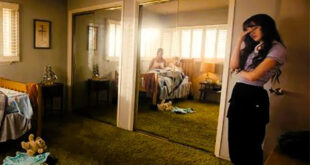I have had the pleasure in recent months of interviewing, by e-mail, some of my favorite writers: Michael Connelly, George Pelecanos and others. Last week I shared interviews with memoirist Toby Young and oral historian Bill Katovsky. Today I want to share an interview I did about a book I read last weekend: Deceit by James Siegel.
I was unfamiliar with Siegel before I read his latest book, Deceit, but I liked it so much that I am going to return to read his three earlier novels: Detour, Derailed and Epitaph.
Siegel picks an interesting protagonist in Tom Valle, a newspaper reporter hated in the journalism community for having fabricated more than 50 articles. As the book begins Valle explains to the reader his dilemma: While working for the only newspaper willing to hire him after the scandal he has come across an amazing story he wants to write about. The problem is nobody believes him. Siegel milks that great premise for all it is worth, invoking in this reader the panicked, frantic, paranoid, confusion that Valle feels while working for a California newspaper.
Scott Butki: Do you have past experience as a journalist or did you have to do some research for this book?
James Siegel: No, I really had no experience as a journalist. But I checked with some journalist pals of mine to make sure I was getting it right
SB: Was one of the journalism scandals – Stephen Glass of The New Republic, Jayson Blair and Judith Miller of The New York Times – inspirations for this story? Which plagiarist would you most like to have dinner and drinks with?
JS: Yes. The stories of Jayson Blair and Stephen Glass most definitely were the inspiration for Deceit. I wondered what would happen if someone like that resurfaced at another paper and stumbled across something horrifyingly true. Who would believe him? What would he do? As far as dinner, Judith Miller isn't quite in the class of… Blair and Glass, since she was more duped than the actual duper. So I would probably pick dinner with her as she was the more legitimate journalist.
SB: You did a wonderful job capturing the pain that is the Santa Ana winds. I grew up in Southern California and didn't get the jokes about how it was 110 degrees but a dry heat until I moved to Arkansas and Maryland. Which is worse – humid heat in the east or dry heat in the west?
JS: I think wet heat is worse than dry heat. Except the dry heat of the Santa Anas can drive you crazy, while the wet heat of the east will drive you into the nearest air-conditioning.
SB: On page 87 you make a reference to having the character consider scoring sympathy points by going on Oprah. Is this a reference to disgraced memoirist James Frey and his appearances? If invited would you appear on her show?
JS: The 'going on Oprah' reference wasn't simply about Frey. It’s become okay, even de rigeur, in this country, to go on these shows and commit public absolution. It seems America is willing to forgive anything if you go on the air and apologize. As far as Frey goes, I was more dismayed that half of America seemed willing to give him a free pass. I thought you read a memoir because it actually happened. Another example, I think, of the general devaluing of truth
SB: How are you – as a writer – affected by what you are writing about? For example, I felt paranoid just reading this book so I wonder if it you felt paranoid writing it.
JS: Yes, I do get affected by what I'm writing. That's part of the fun. If you can't put yourself in your characters’ shoes and on some level feel what they're feeling, give up writing fiction
 Blogcritics The critical lens on today's culture & entertainment
Blogcritics The critical lens on today's culture & entertainment



